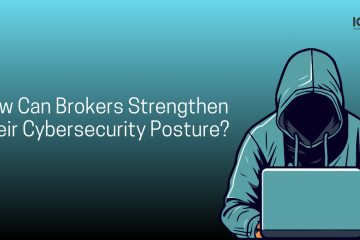Cryptocurrency has revolutionized the future of monetary exchange. The recent upsurge in crypto adoption speaks volumes about its popularity as a trading tool in these current times. This kind of escalated adoption is quite well-grounded, given that cryptocurrencies offer global access, enhanced speed, individual ownership, autonomy, and easy adaptability. However, in order to underpin the safety and security of crypto traders, cryptocurrency and the underlying blockchain technology used do require robust systems in place.

image source: Google
Cryptocurrency trading entails buying and selling digital tokens via valid exchanges. Traders create an account, and purchase digital assets to store them in their wallets till they’re ready to sell; traders are given unique private keys to retrieve their digital asset shares from their respective wallets against their crypto wallets.
So what are the risks?
It is said that no asset class is safe to trade, and there isn’t any denying that the risks involved in crypto trading are a cause of concern among novice investors. However, crypto trading has still been proven to be lucrative for many investors. So, is it safe to trade cryptocurrency?
How safe exactly is Bitcoin trading? Or trade of other well-known cryptocurrencies? The truth is that buying and selling cryptocurrencies does not have to be risky if traders remain up-to-date with the on-goings of the crypto market through market news and updates, daily analysis, and so on.
To understand the implications, it is imperative to first discuss some of the risks associated with the process itself.
Cyber Hacks
The ever-growing popularity of crypto coupled with wider adoption has brought it under the radar of cybercriminals. Once hacked, there is no means of retrieving lost tokens. Exchanges are vulnerable to hacks in spite of having smart wallet protections. And what’s more daunting is that in case traders lose their keys – it’s as good as their tokens lost.
Volatile Crypto Market
With constant fluctuations in Bitcoin prices, crypto markets are quite unpredictable. Traders need to keep track of market trends for a favorable risk-return trade-off.
Fraudulent Exchanges
With the ever-increasing popularity of Bitcoin, activities of fake exchanges have been rampant. The Consumer Financial Protection Bureau has released information about certain crypto exchanges which dupe unsuspecting investors out of their crypto holdings.
Unregulated Asset Class
Crypto trading continues in full swing without government regulations and taxation – the unregulated nature of which creates more space for illicit trade than any traditional asset class, making this a prime cause of concern among some crypto investors.
Intangible Asset
Unlike conventional trading tools, cryptocurrencies are digitally mined. A technology-based currency makes crypto traders more vulnerable to frauds and risks of shutting down.
Given that cryptocurrencies use blockchain technology, there’s a risk of mining pools withholding computed blocks from honest traders, leaving only a handful of traders to reap the benefits, and others left out entirely.
Road To Secure Cryptocurrency Trading
Blockchain technology is growing stronger by the day. And a constantly evolving digital asset market opens up ample opportunities for the uninitiated to test crypto trading grounds.
Financial infrastructure is being built around the industry. Custodian services and futures markets provide retail and institutional investors with the requisite tools needed for managing and safeguarding crypto assets. Financial majors like PayPal and Square Inc. are encouraging traders to buy and sell cryptocurrencies through their platforms.
It is a much safer bet to use CFD trading accounts these days. CFD trading is based on derivatives. It gives traders the chance to speculate on the prices of top cryptocurrencies like Bitcoin, Litecoin or Ripple, without the risk of physically buying them. With CFD accounts, users are required to put up a margin or a minimum deposit for gaining access to the underlying market. Traders can go long or short based on the rise and fall of the crypto’s value.
Thorough and extensive research, as well as the right strategies, are necessary for first-time investors before setting out on a safe and profitable crypto trading journey. It is vital that they choose secure cryptocurrency trading platforms like Coinbase or Binance in order for their tokens to be in safe custody, and be accessed at their convenience.
The usage of cold storage to store crypto tokens offline can protect traders from hacks and thefts. These are external hard drives that traders use to store their addresses and private keys that provide access to crypto assets. Traders must judiciously choose the crypto exchanges and cold storage they operate through. To avoid risks, and ensure safety and reliability, traders should only use their crypto assets and all associated information during trading, and keep everything disconnected after use.
Summing Up
Cryptocurrencies’ decentralized nature and censorship resistance are the primary reasons why they’ve managed to outperform all other asset classes during these testing times. While financial intermediaries rule traditional investments, cryptocurrencies are not owned by any single body. And so as crypto values continue to remain uninfluenced by social, political, and economic turmoil, it’s wise for traders to diversify their portfolio and stay informed of the best methods to avoid any possible risks.
To grasp the basic nitty-gritty of crypto trading, don’t hesitate to schedule a meeting with us!


